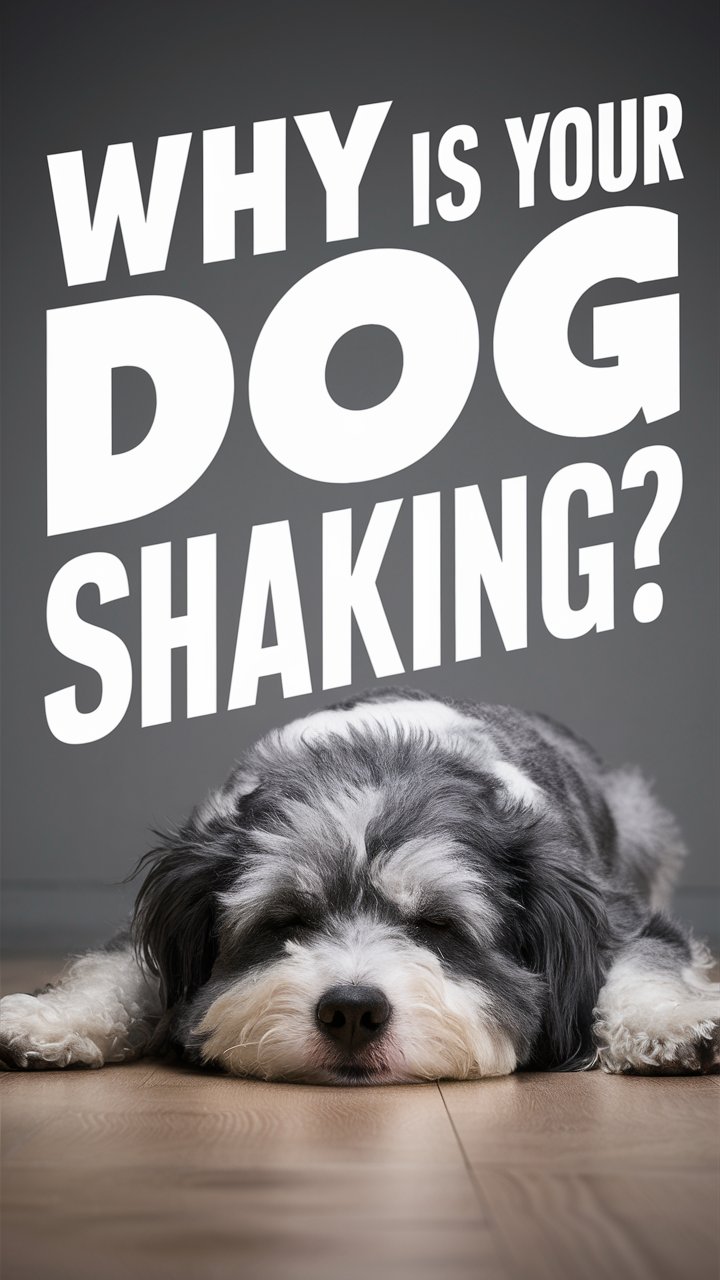Dogs bring joy, loyalty, and unconditional love into our lives. But as a pet parent, it can be alarming when your dog suddenly starts shaking or shivering. While sometimes it’s completely harmless—like when they’re excited or a little chilly—other times shaking can signal a medical issue that requires immediate attention.
In this ultimate guide, we’ll cover:
- Common reasons why dogs shake
- Warning signs you should never ignore
- Home remedies and comfort strategies
- When to see a vet
- Long-term prevention and care
By the end, you’ll feel confident understanding your dog’s behavior and ensuring they stay happy, healthy, and safe.
Why Do Dogs Shake? The Top Reasons
1. They’re Just Cold 🥶
Like humans, dogs shake when they’re cold. Short-haired breeds like Chihuahuas, Greyhounds, and Whippets are especially prone to shivering in colder weather.
What you can do:
- Provide a cozy blanket or dog sweater.
- Limit outdoor exposure in winter.
- Keep their bed in a warm, draft-free space.
2. Anxiety or Fear 😨
Thunderstorms, fireworks, loud noises, or even separation from you can trigger trembling. Dogs are sensitive to their environment and may shake as a physical response to stress.
Signs of anxiety include:
- Pacing or hiding
- Whining or barking
- Seeking constant reassurance
What you can do:
- Create a safe “comfort zone” (quiet corner with toys/blanket).
- Use calming aids (thunder shirts, pheromone diffusers, soft music).
- Practice desensitization training for recurring triggers.
3. Medical Issues That Require Attention 🩺
Sometimes shaking isn’t just behavioral—it’s a red flag.
Possible medical causes include:
- Pain or Injury → Arthritis, sprains, or hidden wounds.
- Seizures → Shaking episodes with stiffness or loss of consciousness.
- Hypoglycemia → Common in toy breeds, low blood sugar can cause tremors.
- Neurological Disorders → Problems with the nervous system.
- Poisoning/Toxins → Ingesting chocolate, xylitol, or certain plants.
- Infections or Fever → Shivering as the body fights illness.
👉 Vet Alert: If shaking is accompanied by vomiting, lethargy, difficulty walking, or confusion, call your vet immediately.
4. Excitement and Happiness 🐾
Sometimes your dog is just… over the moon! Many pups shake when they see their leash, hear the word “walk,” or greet you at the door. This is usually harmless and subsides quickly.
5. Overstimulation or Fatigue ⚡
Dogs can get overwhelmed by too many people, noises, or smells. Like humans after a long, busy day, they may shake to release tension.
What you can do:
- Give them a quiet break.
- Provide mental enrichment games that are calming, not overstimulating.
When Should You Worry? 🚨
Not all shaking is dangerous—but knowing the red flags can save your dog’s life.
⚠️ Call your vet immediately if shaking is accompanied by:
- Vomiting or diarrhea
- Loss of coordination
- Excessive drooling
- Seizure-like activity
- Collapse or weakness
- High fever or hot ears/nose
How to Comfort a Shaking Dog
- Stay Calm – Dogs pick up on your emotions.
- Check the Environment – Is it too cold, loud, or chaotic?
- Offer Warmth – Blanket, sweater, or cuddle time.
- Provide Hydration & Food – Especially for small breeds prone to low sugar.
- Try Natural Remedies – Chamomile treats, lavender diffusers (vet-approved).
Long-Term Prevention & Care
- Balanced Diet → Prevents weakness & hypoglycemia.
- Regular Vet Checkups → Early detection of illness.
- Exercise + Mental Stimulation → Reduces stress and anxiety.
- Comfortable Living Conditions → Warm sleeping area, reduced noise triggers.
- Training & Socialization → Helps dogs build resilience against fear.
FAQs
Q1. Why is my dog shaking but acting normal?
Likely excitement, mild anxiety, or being cold. Monitor closely, but usually harmless.
Q2. My senior dog shakes a lot—should I worry?
Older dogs may shake due to arthritis, pain, or neurological issues. A vet check is strongly recommended.
Q3. Can dehydration cause shaking in dogs?
Yes—low hydration can lead to weakness and tremors. Always ensure fresh, clean water is available.
Q4. Should I give human medicine to calm my dog?
❌ Never! Human meds can be toxic. Always consult your vet for safe treatments.
Final Thoughts
Shaking in dogs can range from harmless excitement to serious medical emergencies. As a responsible pet parent, the key is observation, prevention, and timely action.
👉 If your dog shakes occasionally when happy or chilly, relax—it’s normal.
👉 If shaking is persistent, unusual, or paired with other symptoms, seek veterinary help immediately.
Your furry friend depends on you for care and comfort. With the right knowledge and proactive steps, you can ensure their tail keeps wagging—without unnecessary shivers! 🐕❤️
